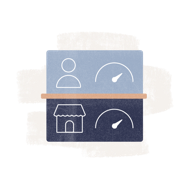Equifax Business Credit Reports
by Gerri Detweiler
You probably know Equifax is one of the three main consumer credit reporting agencies. But did you know they also offer small business credit reports and scores? If you’re a small business owner you’ll want to understand these reports as your creditors, suppliers or even business partners may use them to make decisions involving your business.
Here are some pieces of information included in Equifax commercial credit reports.
- Company data: Name, address, phone numbers, alternate business names (including DBA’s or “doing business as” names), SIC/ NAICS codes, owner and guarantor names. It may also include information such as annual sales and number of employees when available. Corporate family trees, which identify other related businesses, may be included as well.
- Credit data: Business loans or lines of credit from banks or credit unions, equipment leases, business credit cards and other credit accounts may be reported. Equifax is also a Small Business Financial Exchange (SBFE) Certified Vendor which means it is authorized to sell reports that contain data gathered through the SBFE. The SBFE is a nonprofit trade association that maintains the SBFE Data Warehouse, which compiles payment data for commercial bank loans and lines of credit, credit cards and leases and from participating lenders. Inquiries (aka “credit pulls”) will also be listed, however, Equifax does not take inquiries into account when calculating risk scores.
- Public record data: Information available through public records may include business registration information as well as business tax liens, judgments, UCC filings and bankruptcies.
- Payment Index: The credit report will list the number of days, on average, that the business pays its suppliers, based on information supplied to Equifax. Equifax also reports average “Days Beyond Terms” (DBT) and compares those to national and industry averages, when available. Days Beyond Terms is the most common way payment history is reported on business credit reports. It refers to the number of days past the due date the payment is made.
- Financial Data: General information about bank balances and returned checks, assets, real estate owned, inventory and sales, as available.
- Equifax ID: A unique identifying number will be assigned to the business.
Because Equifax also operates a consumer credit reporting agency, it is able to produce credit scores that include information about the owner’s personal credit along with commercial credit data about the business. (This is optional and available with some credit scores. Consumer data is governed by the Fair Credit Reporting Act, which limits access to those with a permissible purpose, such as an application for credit.)
Equifax Business Credit Scores
Equifax offers a variety of business credit scores that are used for credit and collection decisions, equipment leasing, etc.:
Equifax Delinquency Scores
Equifax creates several different business credit scores that are designed to predict how likely a business is to experience a severe delinquency, which means falling 91 days or more past due on an account, having an account charged off or filing for bankruptcy. With the exception of the Early Default Score, below, a higher score is better because it indicates less risk.
These include:
| Score | Range | Predicts |
|---|---|---|
| Business Credit Risk Score | 101-660 | Risk of sever delinquency on any account within twelve months |
| Business Credit Risk Class | 1 – 5 (risk categories) | Likelihood of severe delinquency on any account within next twelve months |
| Business Delinquency Score | 101-662 | Risk of severe delinquency on any account |
| Business Delinquency Financial Score | 101-750 | Risk of severe delinquency on financial services accounts |
| Business Delinquency Risk Class | 1 – 5 (risk categories) | Risk of severe delinquency on any account |
| Business Delinquency Financial Risk Class | 1 – 5 (risk categories) | Risk of severe delinquency on financial services accounts |
| Early Default Score | 0-100 | Likelihood customer will not pay in first four months after account opened. Higher score = greater risk. |
The Business Credit Risk Score, Early Default Score, Business Delinquency Score and the Business Delinquency Financial Score include the option of using personal credit data and commercial credit data.
Equifax Failure Scores
Failure scores are designed to predict the likelihood of business failure in a 12-month period. Generally, higher scores are better because they indicate less risk. These include:
| Score | Range | Predicts |
|---|---|---|
| Business Failure Score | 100 – 1604 or 1000 – 1880 | Likelihood a business will fail within 12-month period |
| Business Failure Risk Level | Red, yellow, or green code | Likelihood a business will fail within 12-month period |
| Business Failure Risk Rating | 1 – 9 | Likelihood a business will fail within 12-month period |
How Your Equifax Data Impacts Your Credit Limits
Equifax also offers scoring solutions that can help lenders determine credit limits. These include suggested credit limits for suppliers, credit card issuers, or those offering loans. Note Equifax does not set credit limits; these tools are designed to be used as guideline by lenders and other factors may determine the actual credit limit granted.
This article was originally written on March 1, 2017 and updated on June 23, 2020.
